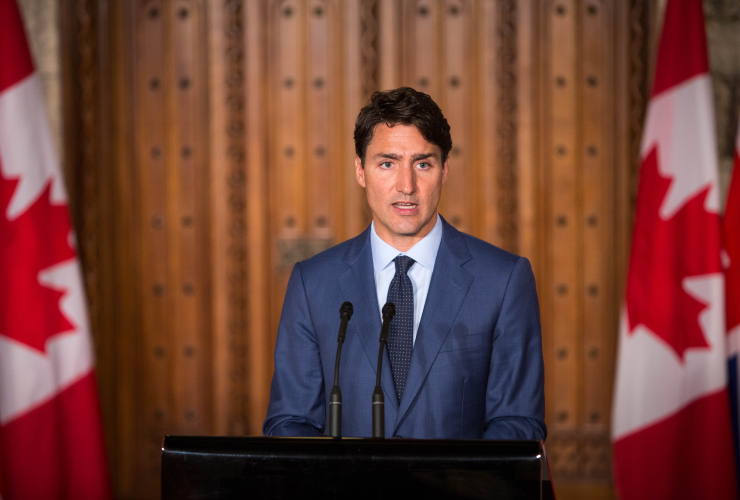The growing sense of unease in the world right now, and here in Canada, is palpable. Inflation remains stubbornly high, the economy seems poised to tip into recession and the Middle East could easily explode at any moment — and take global oil prices with it. For the federal NDP, this is apparently the perfect moment to threaten a snap election over a national pharmacare program.
At last week’s NDP convention, where one in five members voted against Jagmeet Singh’s leadership, members unanimously backed a motion endorsing his threat to pull the plug on their supply-and-confidence agreement with the federal Liberals if they don’t deliver “legislation that commits to a universal, comprehensive and entirely public pharmacare program."
This might make some sense if Singh’s NDP was benefiting from the current political climate, which has the Liberals drowning in the polls and Pierre Poilievre’s Conservatives polling at levels not seen by his party since Brian Mulroney was the leader. Instead, the NDP is barely treading water itself, polling at a paltry 18 per cent support and still trying to pay off its debts from the last election.
Trying to bluff the Liberals with a transparently weak hand at an unfavourable moment is on-brand for the contemporary federal NDP, which often seems determined to play its political chips in the worst way possible. They are trapped in a supply-and-confidence agreement that binds them to a drowning government. Even worse, they’re facing a Conservative Party of Canada deliberately pitching for the votes of working-class Canadians, the sort of people who have traditionally made up the federal NDP’s base.
The NDP’s unpleasant political predicament is also a reminder that the current iteration of the party seems to wear its indifference to the economy (and the way most Canadians feel about it) as a badge of honour. For a party that proudly celebrates diversity within its ranks, there’s one demographic that’s conspicuously absent: the economically literate.
This was the key lesson (for me, at least) of the 2023 Alberta election, where Rachel Notley’s NDP seemed determined not to talk about the economy — and then, when they did, only to discuss their plan to raise taxes — thereby losing an election they very easily could have won. As I wrote at the time, “Whether you like it or not, and many people don’t, in Alberta politics, it’s always the economy, stupid. The sooner the NDP smartens up about that, the better.”
This doesn’t mean offering up an orange-tinted version of the conservative movement’s reflexive loyalty to big business, large corporations and the market economy. This also doesn’t mean promising balanced budgets, as Thomas Mulcair did in the 2015 election. The NDP can, and should, still put the needs and interests of working- and middle-class Canadians first, and do that from their own perspective. But they can’t do that if they’re unwilling or incapable of talking fluently about basic economic issues and how their understanding of them would impact said Canadians.
They have a long, long way to go here. Witness Victoria NDP MP Laurel Collins’ recent tweet about the pending takeover of HSBC’s Canadian banking business by RBC. “RBC is the largest financier of fossil fuels globally — funding Big Oil projects like the TMX,” she said. “We need to break up financial monopolies, not make them stronger.” But as anyone who attended even a few Econ 100 classes understands, Canada’s banking industry is an oligopoly, not a monopoly.
Poilievre registered his own complaint about the deal, of course, but in language that’s far more likely to resonate with most people. “The six biggest banks control almost 90 per cent of all mortgages in Canada,” he said on 640 Toronto. “This would take out one potential upstart competitor who, if it stays in the market and doesn’t get bought, could fight for more market share by offering better products and services.”
See? That wasn’t so hard. And yet, whenever NDP MPs try to talk about things related to or involving the economy, they seem to have all the confidence and fluency of a summer exchange student trying to order a croque monsieur at a Paris cafe. That might not be such a big problem during less turbulent economic times, but when the average voter is suddenly struggling with things like groceries and mortgage payments, they have a keen ear for this sort of thing.
Singh probably won’t be the leader who fixes this. As someone who has cultivated a public image that includes Rolex watches and aggressively tailored custom suits, he fits the role of a Broadbent-esque economic populist about as well as Justin Trudeau would that of a truck convoy supporter. Somehow, his rejoinders against the perils of corporate greed carry less weight when he looks like someone who could work in the head offices of a corporation. It’s no wonder Poilievre has been eating his political lunch with the blue-collar workers.
It’s not too late for Singh to pull off his own Poilievre-esque political makeover and refashion himself as an economic populist. But it’s more likely that he’ll go down as a lesson for federal New Democrats about the dangers of looking too much like an “Orange Liberal” — and the importance of having your own economic story to tell.
Good article Max. But this
Good article Max. But this time you have missed the point. You have either ignored or don’t understand that the world is lost in its commitment to a consumption economy and the truly bizarre belief that governments may not tax extreme (and grotesque) wealth.
The Liberals are captured by the idea that Canada must attract capital and therefore must subsidize all kinds of manufacturing enterprises. Especially it appears, enterprises that consume and produce and produce and produce ever more stuff while killing life on earth. The NDP seems unable to conceive of a national community where poverty is not tolerated, where every child has a right to an excellent education, where every citizen has where every citizen has an inalienable right to eq
… equity and justice.
… equity and justice.
The NDP has lost either the conviction to its principles or perhaps just its courage?
Taxing extreme wealth ? Why not?
Speaking of iterations the
Speaking of iterations the "Orange Liberal" hybrid is demonstrably THE sweet spot for both progressives and the country generally. It also speaks to our political evolution as people with far more important concerns than mere political parties, OR their next horse race.
When an election is called, which I don't think will be soon, climate change will be the main issue, not only because it IS, but also because the conservatives and PP don't even have a horse in the aforementioned race.
And polls are just that. And women don't like Poilievre, which will only increase with more exposure to his nasal, repetitive monotone, not to mention his overall bratty juvenile demeanor.
So take heart Max.
I often take issue with Mr.
I often take issue with Mr. Fawcett, but I completely agree with this article. The left story is fundamentally an economic one. If you don't have an economic plan for making the average-to-poor person better off, you're not really on the left. And if you do have such a plan, and you're in politics, you'd better be telling the people who will benefit how they will benefit.
(All that said, pharmacare is a Good Thing and would in fact economically benefit the poor and middle class. But we need to talk about affordable homes and cheap food)
One problem for the NDP is that while the Conservatives can talk populist and nobody gives them a hard time because the media know they don't really mean it, whenever the NDP start talking about the kinds of things that would really be useful, the media calls them crazy radicals. So for instance, what would the news media reaction be if Jagmeet Singh started talking about price controls? But the NDP should get over their fear and just say some of the real stuff they mean and refuse to apologize; even if they get demonized for it, they'll still probably get better traction than when they say nothing important and are benevolently ignored.
Whereas full employment is a
Whereas full employment is a policy choice of a monetarily sovereign country like Canada and would reduce poverty, enhance labour bargaining power, help reverse the decline in the wage share experienced over the last 30 years, and help decrease the high level of household debt, the NDP should call for full employment (defined as a job offer to all those able and willing to work) through appropriate fiscal stimulus that achieves a productive and sustainable economy by:
a. hiring off the top - including accelerated infrastructure and enhanced government services through a Just Transition framework, and
b. hiring off the bottom - by means of a Job Guarantee program (including training) delivered through lower levels of government and by non-profit community groups in areas such as helping the aged, youth recreation and education, public arts and culture, and environmental stewardship.






Comments